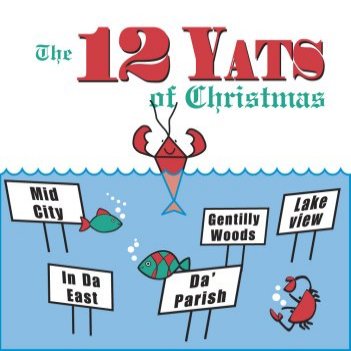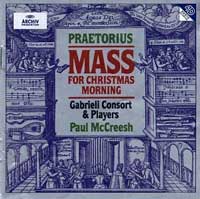20 December 2006 at Christ Our Savior Lutheran Church, Harvey, LA
Text: Zep 3:14-18a (OT from the three-year series)
In the Name of + Jesus. Amen.
One of the greatest preachers of Law and Gospel in history is someone whose name you may have only heard once or twice in your life. Even though he only wrote one short book, it has been translated into nearly every language on the planet, and his book has outsold nearly every other book published in history. And yet, even pastors and theologians typically don’t remember much about him. And that’s probably as it should be – for the proclamation of the Word of God is far more important than any one preacher.
In fact, this preacher’s name means “God has hidden.” His name is Zephaniah, and our text for today is the Word of the Lord as revealed to him, proclaimed by him, and under the guidance of the Holy Spirit, was written by him.
Zephaniah preached at the same time, and to the same people, as his more famous colleague Jeremiah – preaching to the children of Judah around 600 BC. Martin Luther, who was a scholar of the Old Testament, praises Zephaniah as the one who
“prophesies gloriously and clearly of the happy and blessed kingdom of Christ…. Although he is a minor prophet, he speaks more about Christ than many other major prophets…. He does so in order to give the people abundant comfort so that they would not despair … but rather be sure that after this punishment they would receive grace again, and get the promised Savior, Christ, with his glorious kingdom.”
On the eve of the total destruction of Jerusalem and the captivity of the people, Zephaniah calls out for repentance. And in anticipation of that repentance, he preaches the Gospel, the prophetic annunciation of Christ, to the comfort and encouragement of the people in need of Good News.
At the beginning of our reading, Zephaniah bids us to sing, to shout, to be glad, and to rejoice. All of this is in response to the prophet’s announcement that God has taken away our punishment and has turned back our enemy. The prophet exhorts us to celebrate, to feast, to live in boldness and joy – even as we live in repentance and the fear of God. For any dread of death as our wages for sin, any terror of hell as the just punishment for our rebellion – has been removed. The enemy, and Zephaniah uses the singular and not the plural, The Enemy, the one who seeks to wrench us from the arms of our Good Shepherd, has been crushed under foot.
For our King is the Lord Himself, the very King of kings, and Lord of lords. And he prophesies “never again” shall we fear anything. “Never again!” No indeed, our hands do not hang limp like a defeated people, like the children of Judah in chains headed for Babylon – but rather, our hands are strong, raised toward heaven in prayer, held out to others in joy, our chains smashed, our slavery ended, our enmity with God undone, our bondage to Satan no more.
All this, the prophet preached to a people who were only a few years from total devastation, from complete judgment, from an entire generation lost. For the prophet preaches hope in the face of what appears to be doom, of joy in what surely should evoke dread, and victory in what looks for all the world like defeat.
Even as Zephaniah’s name means “God has hidden,” the Messiah that he proclaims is indeed hidden under the humble form of a crucified criminal. This Lord, this King whom Zephaniah preaches is with us, is none other than the One crucified under a sign that reads: “The King of the Jews.” The One whose name, Jesus, means “God saves.” For Zephaniah proclaims “The Lord your God is with you, he is mighty to save.”
The Lord is our salvation, not merely in the political sense, saving us from tyrants and bullies, and not only in the physical sense of protection against pestilence and famine, from war and bloodshed, from sedition and rebellion, from lightning and tempest, from calamity by fire and water – as horrific as these things are, and as glorious as it is to be saved from such things, the Lord is Himself an even greater salvation. He delivers us from sin, error, and evil; from the crafts and assaults of the devil, from sudden and evil death, and yes, even from everlasting death, from hell, from eternal damnation and everlasting separation from the good gifts of creation and our God.
He is indeed “mighty to save.” And such salvation doesn’t merely call for a “thank you,” or even a “thank you very much,” rather it calls for rejoicing with abandon, with reckless joy and feasting, with singing and unbridled mirth.
And so we greet one another in the name of the Incarnate Lord, in the name of the One prophesied by Zechariah, with a hearty “Merry Christmas.” For our mighty Savior is also one who loves us mightily. As Zephaniah preaches to us once more: “He will take great delight in you, he will quiet you with his love, he will rejoice over you with singing.”
Our Lord is not only our Savior and Champion, the Conqueror of the devil and the grave, our Creator, God, and Redeemer, he is more. He is our co-celebrator. He joins us in the parade, laughing with us, embracing us, feasting with us, and sharing his eternal life with us.
Even in our repentance, even in this vale of tears, even as old age and death claim our loved ones year after year, we still have true and limitless joy for the sake of our Lord who was Himself born to a joyful mother amid the sound of angelic hosts and shepherd choirs.
And while we yet await his coming to bring down the final curtain on the final act of history, we wait not with a sense of dread, but rather with expectant joy.
In this waiting for Him to come once and for all, he still comes to us under the humble forms of bread and wine. Even as we await his triumphant return, we participate in his kingdom by eating his body and drinking his blood. There is a reason why special days in the church year are called “feasts.” For feasts always involve eating and drinking. There is a reason why the Lord’s Supper is said to be “celebrated,” and the pastor who consecrates the bread and wine is called the “celebrant.” There is a reason why we don’t merely read words in monotone, looking at our watches, and counting down the minutes until we can leave. No, indeed, minutes mean nothing in eternity. There is no room for anything but singing. When Christians gather for worship, it is a celebration of song and joy – for our sins are forgiven, our punishment removed, our King is on his throne, and the enemy has been destroyed. We now wait for the festival to begin in eternity. All of our well-deserved sorrows have been removed from us, the prophet says.
For God is indeed hidden – under minor prophets from the Old Testament, under a sermon from a preacher and a communion service in a little church in Louisiana, within an executed criminal in 1st century Judea, and within a little baby whose birth we will once more joyfully commemorate in just a few more days. Even as we wait, as we ponder our sins, as we repent, as we keep a lid on our joy in anticipation of the Christmas Feast, we can hardly contain our joy. That is why Zephaniah has been selected to preach to us this third week of Advent.
Dear brothers and sisters, the wait is almost over. Do not be afraid to raise your hands in triumph and sing out in joy:
“Sing, O Daughter of Zion; shout aloud O Israel! Be glad and rejoice with all your heart, O daughter of (Jeru)Salem. The Lord has taken away your punishment, he has turned back your enemy!” Amen.
In the Name of the Father and of the + Son and of the Holy Spirit. Amen.
 Dear Father Hollywood Reader:
Dear Father Hollywood Reader: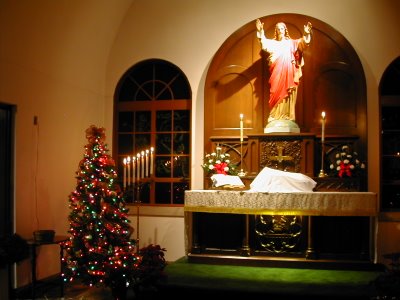
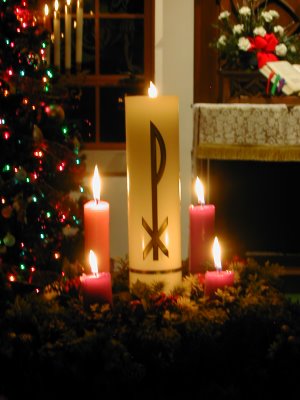
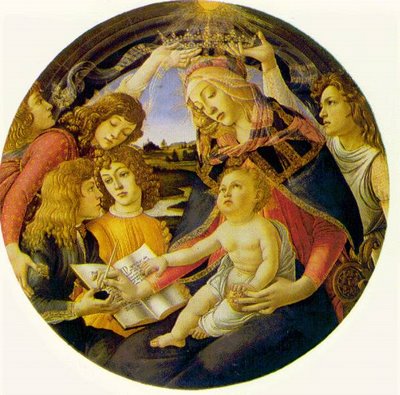



 ’Twas the middle of that sacred time of year when all Americans pause to remember what is most important—Christmas Shopping Season. I had just walked through the automatic doorway of MediaPlay, out in what was then the edge of Rockford’s wasteland (the East State Street shopping corridor, which has since sprawled itself all the way to the interstate and cornfields beyond).
’Twas the middle of that sacred time of year when all Americans pause to remember what is most important—Christmas Shopping Season. I had just walked through the automatic doorway of MediaPlay, out in what was then the edge of Rockford’s wasteland (the East State Street shopping corridor, which has since sprawled itself all the way to the interstate and cornfields beyond). I thought “hot” is what happens to you apart from the Gospel. But seriously, “Hot Gospel”—the thermon euaggelion? The zeston euaggelion? Of course, zesty doesn’t really do it, because hot, in this usage, means something closer to sexy. Could we imagine Saint Paul, standing in the Agora, peddling the pornikon euaggelion?
I thought “hot” is what happens to you apart from the Gospel. But seriously, “Hot Gospel”—the thermon euaggelion? The zeston euaggelion? Of course, zesty doesn’t really do it, because hot, in this usage, means something closer to sexy. Could we imagine Saint Paul, standing in the Agora, peddling the pornikon euaggelion? When Larry Norman left the hippie/Scientologist band People! in 1968 for the Jesus Movement, he
When Larry Norman left the hippie/Scientologist band People! in 1968 for the Jesus Movement, he  Aaron D. Wolf is Chronicles‘ associate editor.
Aaron D. Wolf is Chronicles‘ associate editor.

